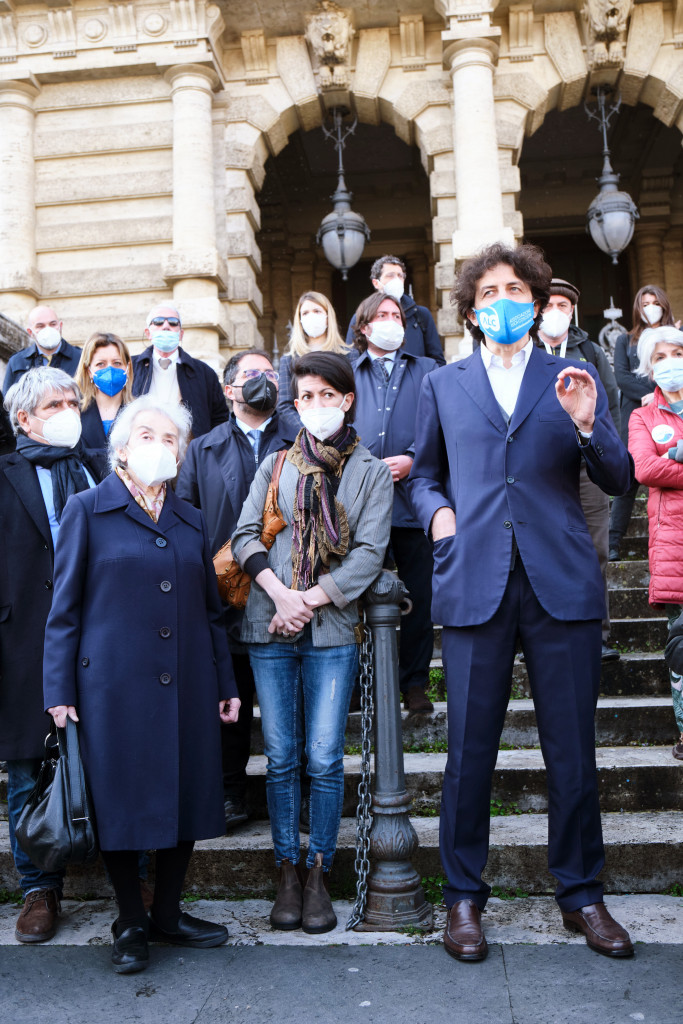Analysis
Italy’s path to legal euthanasia runs through two referendums
‘The time has come to let citizens decide on an issue that politicians have refused to address.’

In order to secure the legalization of assisted suicide and decriminalization of euthanasia in Italy, it will be necessary to vote “Yes” for the two referendum questions filed on Tuesday morning at the Court of Cassation by the Luca Coscioni Association and by a number of representatives of the Promoter Committee, composed of a number of parties (Radicali Italiani, Psi, +Europa, Possibile, Volt), associations and a long list of parliamentarians, regional councilors (from Abruzzo, Friuli-Venezia Giulia, Lazio, Lombardy and Marche), doctors and jurists. However, 500,000 signatures will need to be collected in just three months—July, August and September—so that the Referendum for Legal Euthanasia can be organized next fall.
These will be difficult months, in the task to reach the possible signatories, but the choice of timing was also conditioned by the upcoming elections of the President of the Republic. On Tuesday, after having deposited the documents at the Court of Cassation, the lawyer Filomena Gallo and Marco Cappato, the secretary and treasurer of the Coscioni Association, were received by the Minister of Justice Marta Cartabia for a discussion that had as its primary object the ruling of the Constitutional Court on the Cappato/Dj Fabo case.
The two referendum questions concern the partial abrogation of Art. 579 of the Penal Code regarding the so-called “homicide of the consenting person”—”the one case,” as the Coscioni Association explains in a note, “that takes on a central role in the context of end-of-life choices in our system, since there is no criminal law article that expressly prohibits euthanasia.” The fact that the word is not even mentioned in Italian laws does not prevent the prohibition of “active euthanasia” both in its direct version, as happens in the Netherlands and Belgium, “in which the doctor administers the euthanasia drug to the person who requests it (Art. 579 P.C., ‘murder of the consenting person’),” and in its indirect version, “in which the acting subject prepares the euthanasia drug that is taken independently by the person (Art. 580 P.C., ‘instigation and aid to suicide’), with the exception of the special circumstances introduced by the Constitutional Court.”
With the Cappato ruling, the Constitutional Court has established the non-punishability of those who “facilitate the performance” of suicide “by a person kept alive by life support treatment and affected by an irreversible disease, a source of physical or psychological suffering that they consider intolerable, but fully capable of making free and conscious decisions.” These conditions must first be “verified by a public structure of the Public Health System, after the opinion of the ethics committee that is competent for the territory.” The Court of Assizes of Massa followed this ruling in July 2020 and acquitted Cappato and Mina Welby for the assistance they gave to Davide Trentini when he went to Switzerland in 2017 for assisted suicide. In a few days, on April 28, the trial will begin again in the Appeals Court in Genoa at the request of the prosecutors who have appealed the acquittal.
Repealing parts of Article 579 of the Criminal Code would result in a legal framework that, in the case of aiding suicide, “avoids abuse, leaving that conduct punished as homicide,” and at the same time decriminalizes euthanasia, currently still prohibited due to fitting within the definition of consenting party homicide, “within the current legal framework.” With the modifications, the will of the patient (“with their consent”) would thus be enshrined, and tied directly to the advance treatment directives and the abovementioned ruling 242/19 of the Constitutional Court.
The initiative of the Coscioni Association was applauded on Tuesday by members of the M5S in particular, although the party has not joined the promoter committee. However, many M5S parliamentarians have joined the intergroup on legal euthanasia, which has 52 deputies (8%) and 20 senators (6%) in all, including 20 from the PD, 6 From LeU and 4 from FI. Over 140,000 citizens supported the popular initiative bill on the subject in 2013. There are currently five bills on euthanasia filed in the Chamber, but no basic text, because the process, which began only on January 30, 2019 after the ruling of the Constitutional Court, stalled six months later in the Justice and Social Affairs committees.
“The time has come to let citizens decide on an issue that politicians have refused to address,” Cappato said before entering the Palace of Justice in Rome. Volunteers are being sought to organize the signature collections throughout Italy. In the meantime, starting on Wednesday, those who need to know their rights regarding the end of life have a “White Number” (06 9931 3409) at their disposal.
Originally published at https://ilmanifesto.it/eutanasia-legale-se-la-politica-latita-decideranno-i-cittadini/ on 2021-04-21
